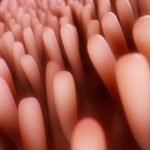Homeopathy in Practice: A Recent Case Study
Joe Kellerstein, DC, ND
Prior to beginning this case report I find myself needing to apologize. Not only am I breaking ranks with the theme of this issue, but really there should be no reporting of so “fresh” a response from a patient. One should report only after having a long view of the case. We are all so aware of the ups and downs of practice.
However, I find myself so moved by the events I was privileged to witness that I need to share them with colleagues. So, please accept this offering not as a final outcome but only as an exciting promise.
Case Study
Alice is an attractive, young university student. Her coarse, brown hair drapes around a face studded with large and bright eyes. She is clearly athletic in build and wears form-fitting clothes that comfortably highlight this fact. It was a bit stunning to note the grace with which she swung her diminutive body between crutches while navigating the 20 feet to my consult office.
Alice sat there smiling and open, totally willing to meet a new person, very centered and warm. I was impressed.
In October 2007, Alice was sitting on the floor in residence watching TV with a group of students. On attempting to rise she was stunned to realize that she couldn’t much use her legs. The lower body was not paralyzed but quite profoundly paretic. She retained full sensation and there was no tingling. Neurologic exam was negative save the reported weakness.
The next morning, she woke with a similar weakness from the neck into the upper limbs. There was weakness and dizziness (at this point I ask all the homeopathic enthusiasts to stop salivating). At one point in the day there was uncontrollable trembling of only the right arm. After an exciting ride to the emergency room by ambulance, followed by a CAT scan and neurological exam, which showed normal reflex and sensation, she was sent home.
Things got a bit better for at least two weeks, when there was a relapse. This time, headache, dizziness and blurred vision/double vision led the way to the emergency room. Again, all results –including an electromyogram (EMG) – were normal. The next weekend was anxious for Alice, and she suffered a hyperventilation attack followed by yawning with shortness of breath.
This young 22-year-old was in no way used to ill health. Vibrant health was the norm for this accomplished dancer, swimmer and gymnast.
But wait a minute. I am just a lowly homeopath, and as all of you fellow homeopaths following this story have noticed, there is a serious incongruity in the remedy I am clearly itching to give by now. We have a relatively rapid onset to a remedy characterized by a gradual onset. There must be something in the past history.
The next complaint on the intake form was hiccough. My initial thought was, “Give me a break. Why discuss something so trivial in the face of what is happening now?” Yet, I did.
As I began to inquire about this, she asked to be excused because there would probably be in the next two hours at least one demonstration of these monster hiccoughs. For the past 2½ years there were long, croaking, painful hiccoughs that could occur several times daily. Sure enough, it happened in the office. There was an involuntary, heaving contraction of the diaphragmatic area squeezing the hypochondrium to about half its width with a prolonged guttural croak. Her face winced with pain through the event.
In fact, chronic hiccoughs (though far less spectacular) had been occurring since early high school. Some weeks prior, Alice had been put on anti-anxiety medication, which seemed to have no effect.
I could find no etiology. There seemed to be no real mental symptoms and this young lady was very well adjusted.
Could all this be one disease? I am no neurologist. What could homeopathy offer this puzzle? Well, I now felt I had a shopping list, so I went Christmas shopping in the Repertory. I had no clear idea of which rubric I wanted exactly, so I headed down the Hiccough aisle in hopes of finding confirmation of my suspicion or a new lead. I was stunned to find this in the Repertory:
STOMACH; HICCOUGH; convulsive, spasmodic (K502, G428) (18): aeth, anan, ars, bell, caj, cupr, Gels, kali-br, mag-p, mand, nux-v, op, ran-b, rob, stram, tab, teucr, verat-v.
Wow, the most prominent remedy in the rubric was the most obvious remedy for the rest of the case.
And for confirmation in Hering: Spasmodic affections of lungs and diaphragm, such as convulsive hiccough, certain forms of asthma, spasms of passages, convulsive cough.
And from Boenninghausen: Hiccough, worse in evening (not seen here, but discussed later).
Prescription: Gelsemium 30c, once daily (prescribed Dec. 20, 2007).
Followup One Week Later
According to Alice: “It was gradual. By the second day I could feel strength return to my legs, and no more crutches. Yesterday, I worked out for a bit and today I danced for 1½ hours. I still hiccough, but interestingly no more pain, and it seems as if the hiccoughs are now mostly in the early evening after dinner around 6 p.m.”
I reached for a tissue and went on holiday.
 Joe Kellerstein, DC, ND graduated as a chiropractor in 1980 and as a naturopathic physician in 1984. He graduated with a specialty in homeopathy from the Canadian Academy for Homeopathy, and subsequently lectured there for two years. He also lectured in homeopathy for several years at CCNM; for eight years at the Toronto School of Homeopathic Medicine; and for two years at the British Institute for Homeopathy. Kellerstein’s mission is the exploration of natural medicine in a holistic context, especially homeopathy and facilitating the experience of healing in clients.
Joe Kellerstein, DC, ND graduated as a chiropractor in 1980 and as a naturopathic physician in 1984. He graduated with a specialty in homeopathy from the Canadian Academy for Homeopathy, and subsequently lectured there for two years. He also lectured in homeopathy for several years at CCNM; for eight years at the Toronto School of Homeopathic Medicine; and for two years at the British Institute for Homeopathy. Kellerstein’s mission is the exploration of natural medicine in a holistic context, especially homeopathy and facilitating the experience of healing in clients.










